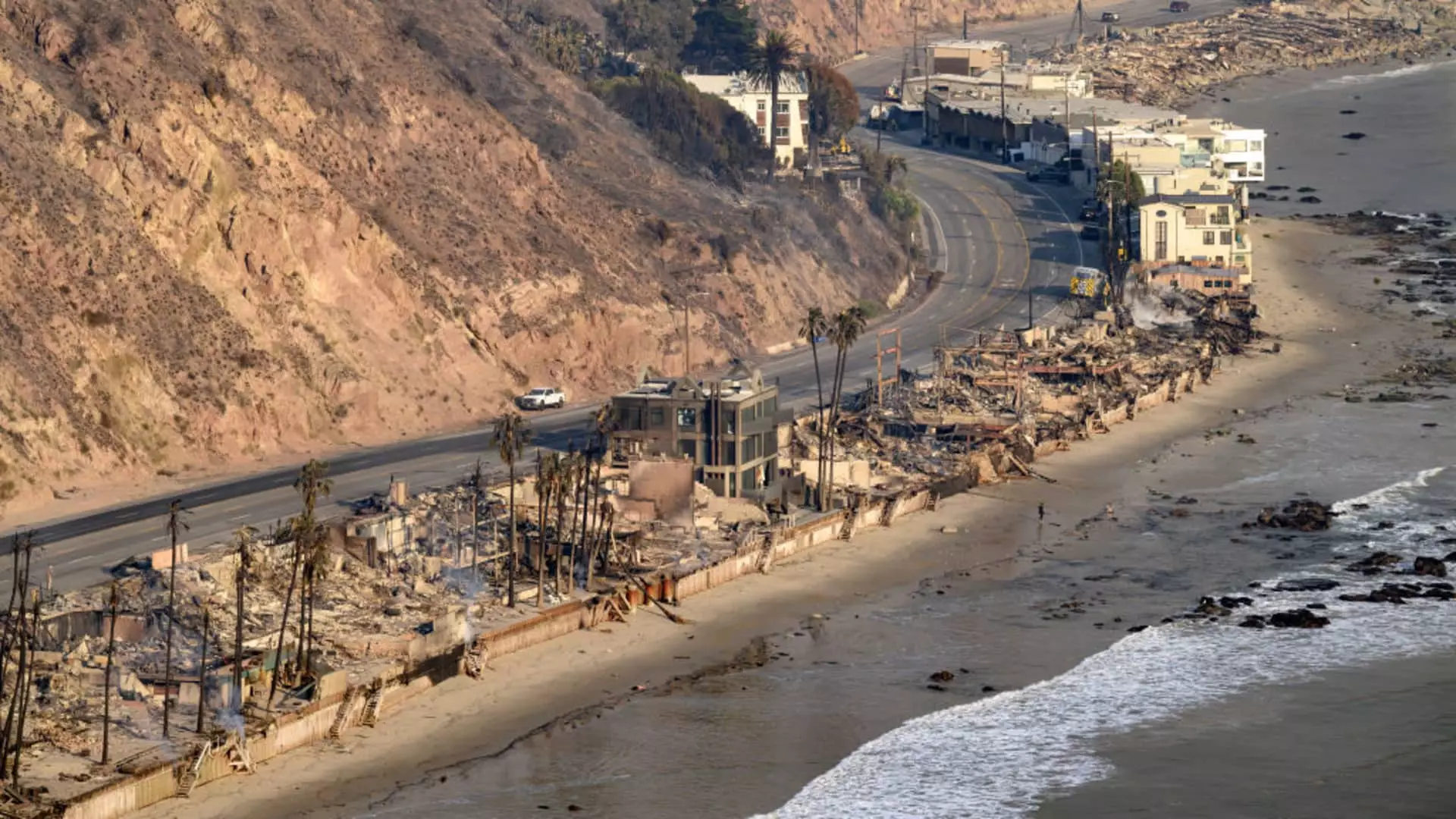As wildfires continue to ravage parts of Los Angeles, the immediate implications for both residents and travelers are considerable. The destruction wrought by the flames has forced local airlines to adopt more flexible travel policies, allowing for adjustments that accommodate the needs of those with plans to visit or depart from the affected area. With over 10,000 homes and various structures lost, the calamity has not only created havoc for local residents but has also disrupted travel significantly.
The extent of the wildfires has been compounded by additional challenges, including power outages and dwindling water supplies. Many residents find themselves grappling with boil water advisories or relying on bottled water—a stark reminder of the conditions on the ground. Despite these dire circumstances, operations at Los Angeles airports have, as of now, remained largely unaffected thanks to swift management and coordination by airline authorities.
In response to the ongoing crisis, major airlines such as American Airlines, United Airlines, Southwest Airlines, and JetBlue Airways are extending travel waivers for passengers scheduled to fly to and from Los Angeles. These waivers allow travelers to change their flights with minimal inconvenience, as they can rebook without incurring fees or fare differences. American Airlines has specified that this benefit applies to flights through various key airports in the Los Angeles area, including Hollywood Burbank, Los Angeles International, Ontario International, and John Wayne Airport in Orange County. This proactive measure is a reflection of the airline industry’s awareness of the challenges posed to customers and demonstrates a customer-focused approach during emergencies.
Similarly, Southwest Airlines has taken additional steps, suggesting that travelers can transfer their bookings to alternative Californian destinations, including Palm Springs and San Diego. This strategy not only accommodates those whose travel plans have been disrupted but also ensures that passengers are not gravely inconvenienced during this troubling time.
The impact of the wildfires extends beyond immediate travel disruptions; it is also affecting the sales performance of airlines operating in and out of Los Angeles. Delta Air Lines recently noted a decline in bookings for flights to the region, categorized as one of their most vital hubs. While sales across other regions remain robust, the airline’s president, Glen Hauenstein, acknowledged the fluctuations in demand, attributing them to the wildfires. Although the downturn in bookings has been highlighted, it is important to recognize that this is not resulting in widespread cancellations—rather, it reflects cautious consumer behavior during a natural disaster.
Furthermore, it is noteworthy that such crises often induce a resurgence in travel demand once the situation stabilizes. As communities begin rebuilding, the need for business and personal travel frequently increases, presenting opportunities for airlines to recover lost revenue from periods of reduced demand.
The situation in Los Angeles serves as a poignant reminder of the vulnerabilities faced by major urban areas due to natural disasters. As wildfires and other environmental challenges loom, the airline industry must remain agile, ensuring policies are in place to accommodate affected travelers while maintaining operational integrity. Drawing from historical instances where demand has surged post-disaster, airlines can implement strategic marketing and promotions that cater to the anticipated influx of travel as residents and businesses begin to rebuild their lives.
While the immediate circumstances surrounding the wildfires in Los Angeles present significant challenges both to local residents and travelers, the industries affected—including airlines—are adapting in real time. By providing flexible options and ensuring the safety and convenience of their patrons, airlines can weather the storm and continue to thrive despite uncontrollable external factors. The resilience of the airline industry in the face of calamities will ultimately define its role in facilitating recovery and supporting communities as they navigate the aftermath of natural disasters.

